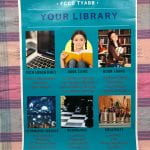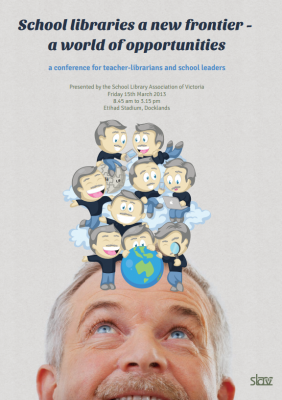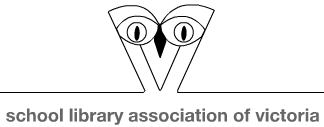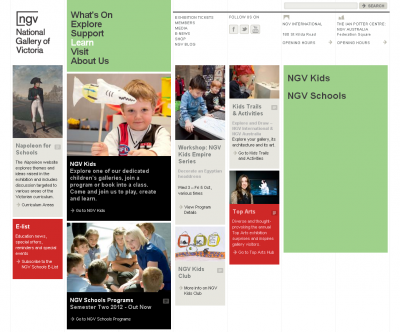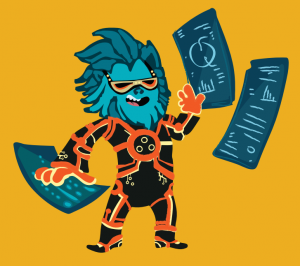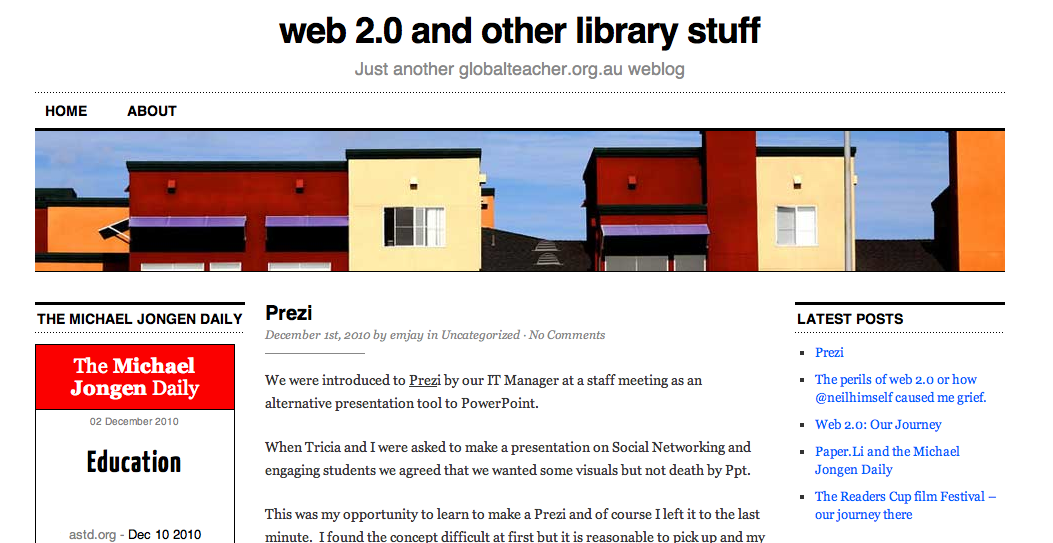The National Gallery of Victoria was the perfect venue last week for the School Library Association of Victoria conference Reading Culture: Collaborate, Create, Celebrate. Presented in collaboration with NGV Education and Programs, the relaxed and collegial atmosphere for the day was set when delegates gathered in the morning sunshine for coffee and catchup chats. The blending of culture, literature, learning and technology amidst the treasures of the National Gallery once again proved to be an inspiring combination.
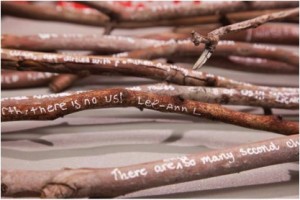
Bunjil's nest
Sue McKerracher, National Year of Reading (NYOR) spokesperson opened the conference with an invitation to the audience of approx 210 to join the excitement of this special year that puts the love of reading and the sharing of its pleasures into the spotlight. The range of resources and ideas on the official NYOR website indicate that 2012 will be an exciting year for reading in Australia.
Author talks are always an opportunity to get to know the person behind the story. Alison Lester’s engaging conversation with Laura Harris of Penguin Books, gave us a glimpse of inspiration behind her career as an illustrator and writer. Alison’s book Are we there yet? is the feature book for the 2012 National Year of Reading. Her discussion with Laura focussed the book she wrote in collaboration with Coral Tulloch, One small island (set on Macquarie Island) and a special preview ‘peek’ at her forthcoming title Sally Scott goes south.
Petite and articulate author Alice Pung took the audience on a journey back to her father’s life as a survivor of Pol Pot’s Cambodian Killing Fields through her eloquent story telling. She spoke of the lives that contributed to her books; stories of hardship and survival, full of emotion, yet shared in a way that emphasised humour and poignancy in the telling. Her latest book Her Father’s Daughter has been a journey for Alice herself as she came to know and appreciate her father on a different level.
Workshops exploring the interaction between literature and art are always popular. The linking of art, literature and Medieval history; explorations of the work of Albrecht Durer and the use of art to stimulate creative writing and thinking inspired a buzz of conversations. I attended the inspiring session Bunjil’s Nest which had a strong focus on sustainability, Koori culture and environmental awareness. It celebrates Bunjil the Eagle, creator spirit of the Kulin Nation and has involved numerous schools and community groups. This is an ongoing collaborative project with resources available online that provide learning support and inspiration. A wonderful class activity.
After lunch in the beautiful Great Hall, delegates ventured into the ‘nuts and bolts’ activities of school libraries which included establishing an online bookclub, an exploration of apps, ipads, digital storytelling and the experiences of the SLAV/FUSE Web Elements Engaged Project. At this time, I attend of the knowledge sharing session of SLAV members Joy Board of Beaconhills College and Anne Whisken of Carey Baptist Grammar School in an attempt, like many others present, to gain an understanding of the complex options available in setting up a library management system to handle the range of resources in today’s library. The resources from these sessions will be available on the professional development link (past papers) on the SLAV website.
The conference concluded with delegates being taken on a journey of the restoration of the painting The Crossing of the Red Sea by Nicholas Poussin with NGV Painting Conservator, Carl Villis. Truly fascinating. You are invited to follow the progress of this major project online.
Presentation of SLAV achievement awards was the highlight of the conference. The following awards were presented and our congratulations go to these worthy recipients:
John Ward Award – Joy Whiteside, Overnewton Anglican Community College
Innovator’s Grant – Sally Sutherland, Melbourne Girls’ College
SLAV Research Fellowship – Pam Niewman, Clairvaux Catholic School
School Leader’s Award – Julie Ryan, Principal, Our Lady of Mercy College
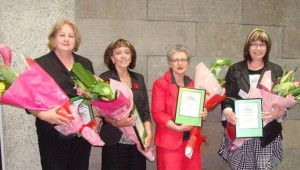
SLAV Awards 2011
This was another day celebrating the knowledge and ideas of library and learning professionals.
Camilla Elliott is Head of Library and eLearning Coordinator at Mazenod College, Mulgrave. She is also Chair, SLAV Professional Development Committee.
